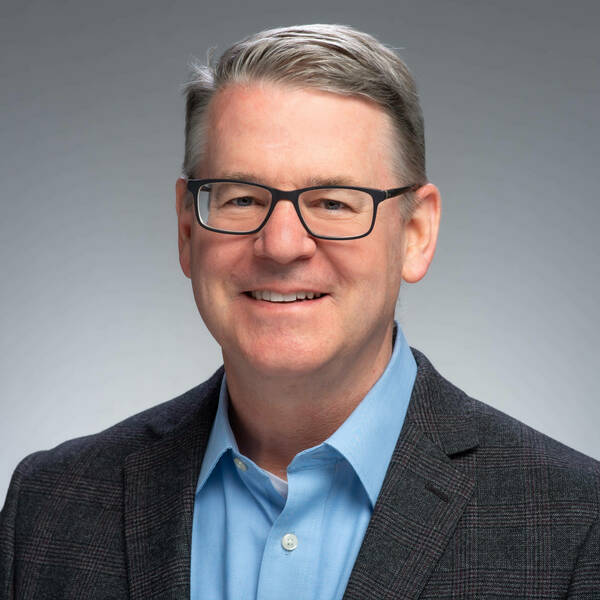Notre Dame helps establish first US node of top computational modeling network
The European Centre for Atomic and Molecular Computation (CECAM) is the longest-running European institute for promoting computational methods. Sometimes called the “third pillar of science,” computational methods involve a new form of discovery that complements theory and experimentation. These methods have become central for advanced research in materials science, medicine, biology, and other fields. Headquartered in Lausanne, Switzerland, CECAM initiates research and training at 17 different nodes across Europe and Israel.
This month, the University of Notre Dame announced it will help launch an eighteenth CECAM node, extending CECAM’s network to the United States for the first time.
The node, which will be called CECAM-US-Central node, will be based at and led by the University of Chicago. In addition to the University of Chicago and Notre Dame, several leading Midwestern research universities will be founding partners, including Northwestern University, the University of Illinois at Urbana-Champaign, and the University of Wisconsin-Madison. The Argonne National Laboratory will also serve as a founding partner.

Edward Maginn, the Keough-Hesburgh Professor and associate vice president for research at Notre Dame, said, “The University of Notre Dame is excited to partner in the establishment of CECAM-US-Central. Notre Dame has long been a leader in the field of molecular modeling and simulation, and the establishment of this CECAM node will allow us to further strengthen our research in this rapidly changing field. Along with our partner institutions, we look forward to developing this node into an intellectual hub for the advancement and application of new simulation and modeling methods to solve some of the most challenging problems facing society.”
CECAM Director Andrea Cavalli said, “The CECAM-US-Central remarkably impacts the global positioning of CECAM by creating its first node outside of Europe. This node brings together a strong and exciting consortium of partners. It provides CECAM with a unique opportunity to strengthen further knowledge exchange between European and U.S. researchers in computational science. These scientific and technological activities are crucial to fostering exciting collaborations in leading-edge theories, software, and applications to address grand challenges for societal progress.”
The node and its members will host workshops, seminars, and conferences and provide opportunities to jointly develop training programs and networks. Faculty and students will also have the opportunity to visit and/or work alongside peers at other CECAM nodes.
The new node will officially launch in January 2024, and its first activity will be an academic conference to be held at the University of Chicago in July 2024.
Contact:
Brett Beasley / Writer and Editorial Program Manager
Notre Dame Research / University of Notre Dame
bbeasle1@nd.edu / +1 574-631-8183 research.nd.edu / @UNDResearch
About Notre Dame Research:
The University of Notre Dame is a private research and teaching university inspired by its Catholic mission. Located in South Bend, Indiana, its researchers are advancing human understanding through research, scholarship, education, and creative endeavor in order to be a repository for knowledge and a powerful means for doing good in the world. For more information, please see research.nd.edu or @UNDResearch.
Latest Research
- University of Notre Dame and IBM Research build tools for AI governanceMain Building (Photo by Matt Cashore/University of Notre Dame) …
- Smarter tools for policymakers: Notre Dame researchers target urban carbon emissions, building by buildingCarbon emissions continue to increase at record levels, fueling climate instability and worsening air quality conditions for billions in cities worldwide. Yet despite global commitments to carbon neutrality, urban policymakers still struggle to implement effective mitigation strategies at the city scale. Now, researchers at Notre Dame’s School of Architecture, the College of Engineering and the Lucy Family Institute for Data & Society are working to reduce carbon emissions through advanced simulations and a novel artificial intelligence-driven tool, EcoSphere.
- Seven engineering faculty named collegiate professorsSeven faculty members in the Notre Dame College of Engineering have been named collegiate professors—a prestigious title awarded by the university and college in recognition of excellence in research, teaching and service. The designation may be conferred on faculty at the assistant, associate or…
- ‘A special challenge’: German studies scholar wins National Humanities Center fellowship for research on medieval womenFor CJ Jones, the joy of research is not the answers but the journey. And the next step on that journey is a fellowship with the National Humanities Center. …
- Notre Dame Lead Innovation Team partners with local WIC program to identify, prevent lead poisoning in childrenB.A.B.E. store “shoppers” now have something new to help their families: free lead screening kits offered by the University of Notre Dame’s Lead Innovation Team.
- Notre Dame Welcomes Ninth Cohort of Warrior-Scholars for Transformative Academic JourneyNOTRE DAME, IN – The University of Notre Dame recently concluded its ninth successful Warrior-Scholar Project (WSP) boot camp, hosting 34 dedicated Warrior-Scholars from June 21st to 28th. This intensive, week-long academic residency provided transitioning service members and veterans…













